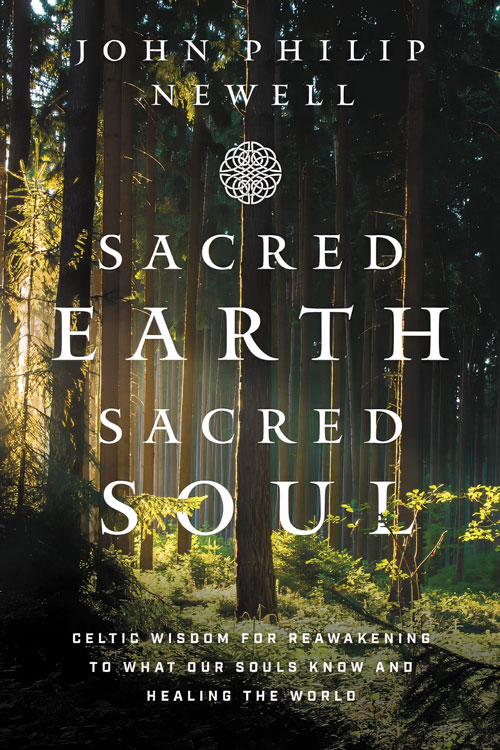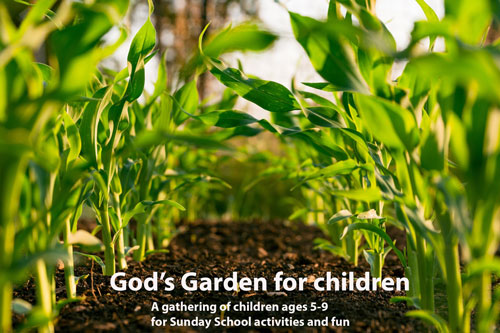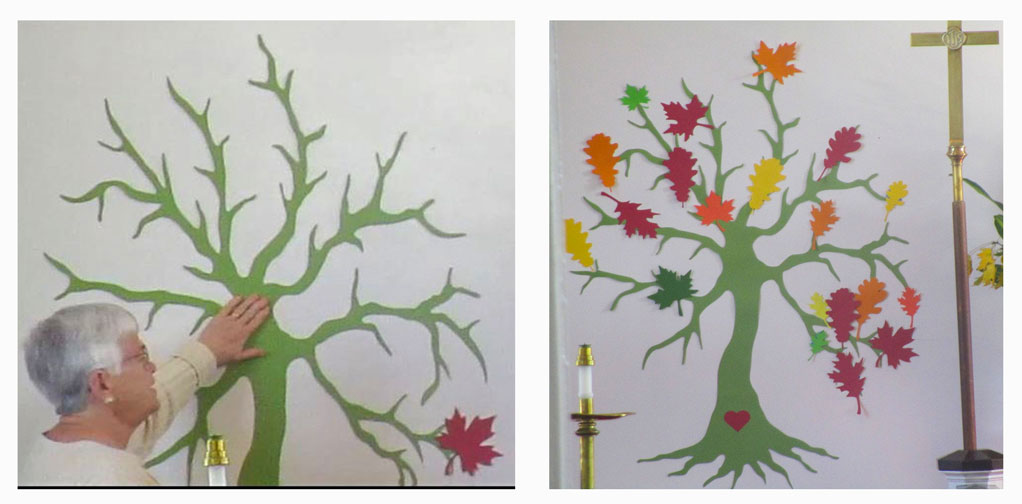2023 Sun Oct 29
Reformation Day, Oct. 31

Reformation Day is a religious holiday celebrated on October 31, alongside All Hallows’ Eve, in remembrance of the Reformation, particularly by Lutheran and some Reformed church communities. It is a civic holiday in some German states.
It celebrates Martin Luther’s posting of the 95 theses on the church door at Wittenberg in Germany on Oct. 31, 1517. The event is seen as sparking the Protestant Reformation.
There are some questions of fact. The event was not publicized until 1546 by Philipp Melanchthon and no contemporaneous evidence exists for Luther’s posting of the theses. At the time, it was common for scholars to post their debate points on the door where people could read them. Copies of Luther’s theses and his fiery follow-up sermons were mass produced on a relatively new invention the printing press.
Luther’s movement began as a criticism of Catholic practices, not to split off from the Catholic church. Sinners could buy God’s forgiveness by purchasing an indulgence. Luther preferred justification by faith. He also wanted people to read the Bible in their own languages and not just in Latin
The Reformation led to the split from one Catholic church to Protestant ones. There are now nearly 45,000 Protestant denominations around the world, including mainline Protestants, Anglicans, Evangelicals, Pentecostals and more.
It has been seen as the most significant event in Western Christian history and mirror in which we measure ourselves today. Many of the differences that promoted the reformation have been solved – indulgences, justification by faith and having the Bible printed in multiple languages. Others such marriage of priests, same sex marriages are still divisive. Will they be able celebrate communion together ? That may take another reformation.
Here is an impromptu performance after the 11am service on Oct. 27, 2019 of part of Luther’s famous hymn. He wrote the words and composed the melody sometime between 1527 and 1529:
Sermon, 22nd Sunday after Pentecost, Oct. 29, 2023

Today’s passages are about love: loving God, loving our neighbors, and loving creation as well. When we love all that God has made, we discover for the first time, or all over again, even more brightly, that God’s glory shines through all of creation. When we enter that sacred glory, we can’t help but open our hearts to God’s deep, healing love for each one of us and for all that God has made.
As we enter God’s shining, whether it’s walking through the woods on a bright autumn afternoon, the air shimmering golden, or seeing a glimmer of silver light reflected in drops of falling rain, we begin to sense that God’s glory dwells not only in the beauty of creation, but in our hearts as well. We begin to sense that we, ourselves, our souls, our bodies, are all caught up in this glory, that we are part of God, part of the earth and part of one another.
This same shining glory that we find in creation is the shining glory that we see in one another when we remember that God made us all, loves us all, that all of us are beloved by God.
Opening our hearts to God’s glory and being willing to enter it is the path to holiness.
“You shall be holy, for I the Lord God am holy,” God says to the Israelites.
God intends for each one of us to claim our holiness by coming to know that all that God made is holy and blessed, that all creation holds the shining glory that is God.
And then God asks us to gratefully respond to this shining glory with compassion, mercy and justice, for the compassion that we have for one another is a holy act that allows God’s shining to break through, even in the places where God seems to be absent.
Bulletin, Pentecost 22, Oct. 29, 2023
Click here to view in a new window.
The flow of the Lectionary, Oct. 29, 2023

From the “SALT Project”
1) This is the fifth week focusing on the back-and-forth in the Jerusalem Temple between Jesus and various religious and civic authorities, all of which takes place over a two-day sit-in or “teach-in” in the Temple by Jesus, his entourage, and the accompanying Palm Sunday crowds. This week, the final round: a last question from a group of religious leaders, and a last question from Jesus.
2) The duels so far have consisted largely of the authorities trying to discredit Jesus by testing his knowledge and trying to entrap him — and so it’s a fitting reversal that he finishes out the struggle by stumping them with a scriptural riddle.
3) It was a common exercise among religious scholars of the day to debate which of the 613 commandments in the law is “the greatest,” meaning the one that sums up the essence of the whole, or serves as the hub at the center of them all. The so-called “Shema” (or “Listen”) figured largely in Israelite liturgy and life: “You shall love the LORD your God with all your heart, and with all your soul, and with all your might” (Deut 6:5). “Love your neighbor as yourself” is from Leviticus 19:18, a relatively minor commandment among the 613, but at the same time one sometimes exalted as quintessential
4) The context of Leviticus 19 is worth bearing in mind, since it indicates what sort of “love” Jesus is referencing. The verses just prior to 19:18 command Israel to leave gleanings in the fields both for the impoverished and for immigrants, and to refrain from dishonesty, stealing, mistreating the disabled, corruption, slander, hatred — and finally, in verse 18 itself, vengeance: “You shall not take vengeance or bear a grudge against any of your people, but you shall love your neighbor as yourself: I am the LORD” (Lev 19:18).
5) Likewise, the context of Deuteronomy 6:5 is worth remembering: here the “love” God commands is to be manifest in “keeping all God’s decrees and commandments, so that your days may be long” (Deut 6:2). That is, the law is given not as an arbitrary list of “thou shalts and shalt nots,” but rather as a listener’s guide to vibrant, healthy communal life.
The Village Harvest, Oct. 2023, the end of 9 years
The Village Harvest began with its first distribution in Nov. 2014. Thus in Oct. 2023, we are measuring 12 months since November, 2022 and the end of 9 years. In Nov. 2023, we will begin the 10th year of the harvest.
For the 12-month period ending Oct. 2023, we served 1012 customers. That is the lowest since Nov 2019 to Oct. 2020 due to the pandemic. We have been on a declining trend since 2016. However, 2023’s decline is related to the lower 1st quarter 2023 clients. For the first quarter, We served only 218 clients in 2023 much lower than in earlier years (2020, 310;2021, 295; 2022, 296)

Reviewing the period after the first quarter (April through Oct) provides a much different result. We served 623 in 2023 (April through Oct). This result exceeded 584 (2022) and 506 (2021) The first quarter of this year was clearly an anomaly that affected the 12-month results and the Harvest’s figures since the first quarter are impressive. The April-Oct figures currently are below that of earlier years which were a minimum of 800

“God’s Garden” Fall Session Completed

This fall, Jan Saylor and Elizabeth Heimbach have been meeting each Sunday with a wonderful group of children who have been enthusiastic about singing, talking, listening, and learning.
God’s Garden met for the first time on Sept 17 for 30 minutes in the Parish House before church for 5-9 year olds. The curriculum was developed by the Episcopal Relief and Development organization, and it is designed to help children see God’s gifts around them everywhere in the world of nature.
The class combines song “The Lord’s Been Good to Me”, Bible stories, and crafts. The first lesson focused on water; other lessons centered on animals, seeds, and soil. A favorite part of the animal lesson involved packing little bags of treats for cats and dogs. The class was delighted to distribute the treats to pet lovers as part of the service celebrating St. Francis.
Attendance has been mosty comprised of 3 girls who are very engaged answering questions and responding. The class completed after Sunday’s lesson Oct. 22, 2023. Looking forward, Jan and Elizabeth hope to continue with a second session later in the year.
Recent Articles, Oct. 29, 2023
Bulletin
Sermon
Lectionary for Pentecost 22
Photos Oct. 29, 2023
Videos, Oct. 29, 2023
Commentary Oct. 29
Vanderbilt visual commentary
The Flow of the lectionary
Stewardship Commentary
Gospel Reflection
Concept of love in Biblical times
Introduction to Thessalonica
Why does Paul go to Thessalonica”
Request for names for All Saints Sunday
Ministries
The Village Harvest, Oct. 2023, the end of 9 years
ECM Thanksgiving donations
Completion of God’s Garden class
End of October
Reformation Day Oct. 31, 2023
How do we get halloween (Oct. 31) from All Saints (Nov. 1) and All Souls(Nov.2)?
Stewardship 2024
To be a Church Rooted in Love
Planning your financial giving
Options for estimating your giving
Ministry Connections
About Stewardship
5 Principles of Stewardship
Stewardship is…
Stewardship FAQ
2024 Planning
Walk in Love planning help
Fall photos
Robert Frost, October
Early Fall
End of Oct., Early Nov. – A Summary
Halloween originated in Celtic cultures the day before Samhain, the beginning of the Celtic winter. It focused on death blending in the supernatural. The Catholic Church incorporated non-Christian traditions into its holidays to bring people to the church. It scheduled All Saints (Nov 1 ) and All Souls (Nov. 2) after Halloween. All Soul’s focused on those who had died without the supernatural. All Saints celebrated all who believed and were baptized The word saint originally meant “holy”. Later it became a feast day commemorating all martyrs.

